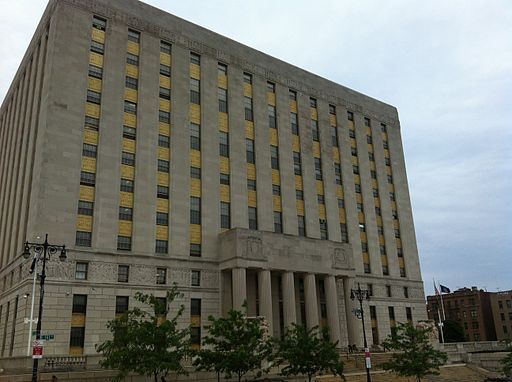By Amanda Ottaway/Law 360
While a new bill in Congress that would provide paid leave for workers who’ve experienced domestic violence or sexual assault may be unlikely to pass this go-round, states and cities have already enacted paid safe leave policies that require employers’ attention, experts said.
States With Paid Safe Leave for Survivors of Violence
As Congress mulls a bill that would require paid safe leave nationwide for survivors of sexual assault and domestic violence, many states have already codified it.
Arizona
California
Colorado
Connecticut
Maryland
Massachusetts
Michigan
Minnesota
New Jersey
New Mexico
New York
Oregon
Rhode Island
Vermont
Washington
Source: A Better Balance, April 2024
The SAFE for Survivors Act was introduced Sept. 19, ahead of Domestic Violence Awareness Month in October, by U.S. Sen. Patty Murray, D-Wash., Rep. Debbie Dingell, D-Mich., and Rep. Gwen Moore, D-Wis. It would require 10 paid days of leave and 40 days total of job-protected leave for survivors of domestic violence or sexual assault. Though experts acknowledged the bill would have a tough road toward passage in a contentious election year, they said it’s likely to get people talking and raise awareness both of the issues survivors face in the workplace and the rights they already have in many states.
“I think it’s a topic that is important to discuss, and I think that having this come up as a piece of federal legislation for discussion gets the conversation going on something that can otherwise be not talked about as much as it should,” said Dan Schwartz, a partner at Shipman & Goodwin LLP who represents employers. “So if it’s a small, modest step to ensuring that victims of domestic violence can get more assistance and protection from their employers, it seems like it’s worthy of the discussion.”
Minor Adjustment with a Big Impact
Schwartz practices in Connecticut, which has a paid safe leave requirement. It’s one of many states that have already picked up the baton: According to worker advocacy group A Better Balance, 15 states and the District of Columbia, plus 13 cities and two counties, have passed paid sick time laws that include a safe leave requirement as of April.
The federal bill would also require employers to provide “reasonable accommodations” to help employees who are survivors of violence, as well as bar discrimination against them. Workers can use the time to seek safety following an instance of domestic violence, report the violence to authorities, attend a court date or receive medical care. Some states additionally include sexual assault and stalking as qualifying acts of violence covered by these laws.
“The reality is that when someone’s going through a trauma like this, psychologically being able to focus on anything else is really tough, right? So the ability to not have to go to work, but not have to lose your job, is really important,” said worker-side lawyer Sara Wyn Kane of Valli Kane & Vagnini.
The statistics that underpin SAFE for Survivors Act are sobering: One in four U.S. women and one in seven men experience intimate partner violence at some point in their lives, and one in four women say they have been raped. Nearly half of both women and men experience “psychological aggression” by an intimate partner, according to the bill and the federal lawmakers who introduced it.
Experts on both the worker-advocate and management sides said a federal standard enshrining paid leave protections for survivors of such violence makes sense. Schwartz noted that multistate employers tend to have a hard time when state laws are passed on a patchwork basis.
The federal bill would also require employers to provide “reasonable accommodations” to help employees who are survivors of violence, as well as bar discrimination against them. Schwartz said compliance with Connecticut’s law hasn’t been a “dramatic shift” for employers, largely because most don’t tend to come across these kinds of issues. That’s likely in part because of the stigma around domestic violence, he said.
“I do think that when the issue has come up, employers may not be aware, necessarily, of the protections that are out there. So I think it’s a learning curve more than anything else,” he said, adding, “It’s not particularly onerous because the protections are fairly modest in nature.”
Employers benefit from being able to keep somebody connected to their job as they seek safety and deal with the aftermath of domestic or sexual violence, said Jared Make, a vice president at A Better Balance, which endorsed the bill. Having to hire and train a replacement employee takes time and money, he pointed out.
“There’s also a reality that employees who experience domestic violence or sexual assault often are already taking time off, and this is really just meeting a demand and allowing what, increasingly, is a basic right to paid leave to be used for this purpose as well,” he said.
‘Sky Has Not Fallen’ in States With Paid Leave
States have had protections on the books for domestic violence survivors for some time that allow them to take job-protected, unpaid leave. But in the last decade or so, paid leave is catching on as a requirement, Make said. In some places, like New York, it’s bundled as a “paid sick and safe leave”
requirement.
The other states with paid safe leave laws on the books are Arizona, California, Colorado, Connecticut, Maryland, Massachusetts, Michigan, Minnesota, New Jersey, New Mexico, Oregon, Rhode Island, Vermont and Washington, according to ABB. Most of them also allow the leave to be used to take care of a family member or loved one experiencing this kind of violence, Make said, another key feature.
“Having evidence of how the growing number of state and local paid safe leave protections are working has only increased the conversation federally, and I think brings a lot of momentum into this year’s introduction,” Make said.
“What we’ve just seen in practice is it’s working well,” he added. “The sky has not fallen in the states that have paid leave laws on the books.”
Kane practices in New York, whose paid sick and safe leave law requires employers to provide up to 56 hours per year of paid leave. A federal law would allow workers nationwide “to then take that beat that they need to — not fix the situation, because that’s not necessarily going to give them that time — but to at least address their needs, their immediate needs in that moment.”
Paid family and medical leave programs in a handful of states also provide more extended time off, Make noted. These laws in places like Colorado, New Jersey, Connecticut and Oregon cover everything from bonding with a new child to, increasingly, recovering from domestic violence and sexual assault, he said.
Kane said more time makes sense.
“It makes sense if you think about it — if somebody’s trying to get out of a horrible situation, or they’re in the middle of a crisis, a day or two’s not going to cut it,” she said.
Chipping Away at Stigma
Schwartz said he works with employers sporadically on how to handle a situation where a worker might be experiencing domestic violence of some kind. While it tends to not come up often, that’s not necessarily because it’s not happening, he said.
“I think part of that is the sort of stigma that still gets attached to domestic violence,” he said, adding, “It is swept under the rug, unfortunately, and employees feel very timid about asking for the benefits that they’re entitled to under the law.”
“It will typically come up, not necessarily with an employee asking for it, but an employer who is conscious about what is happening with a particular employee and offering that extra hand,” he said.
For example, human resources or the employee’s manager might notice that she’s running late to work a lot or that her spouse keeps calling the office.
In that case, the employer could approach the employee and remind them that if they need help, there are certain benefits available to them, including sick and safe time.
“But again, that’s still far too rare in the workplace,” Schwartz said.
And it’s a tricky line for employers too — they can’t force their employee to do anything or make any assumptions about what might be happening.
“A manager can say, ‘Look, my understanding is, you’ve been out. Is there anything we need to know? There are job protections for certain leave requirements,'” he said.
That kind of conversation could go many different ways, Schwartz acknowledged; it could cause employees to open up or shut down.
Another consideration for employers is that documentation requirements — what proof employers can ask for of a worker’s need for the time off — also vary under these laws.
ABB’s Make said the organization works closely with coalitions of survivor advocates in order to help ensure workers can invoke their rights to leave while maintaining some level of discretion with their employer.
“Almost every law, when documentation can be required by an employer, they can’t require an employee to go into detail. So there are important parameters that I think need to be established,” he said.
Make also emphasized the importance of ensuring these kinds of benefits consistently. The workers who already most lack access to paid leave are people in low-wage jobs, especially workers of color and LGBTQ workers.
“Domestic violence and sexual assault can happen to anybody, but there are clear disparities in who has access to the supports at work and the ability to take time off,” he said. “And so you really see those realities collide.”
–Editing by Aaron Pelc and Emma Brauer.
Read the article from Law360 here.







